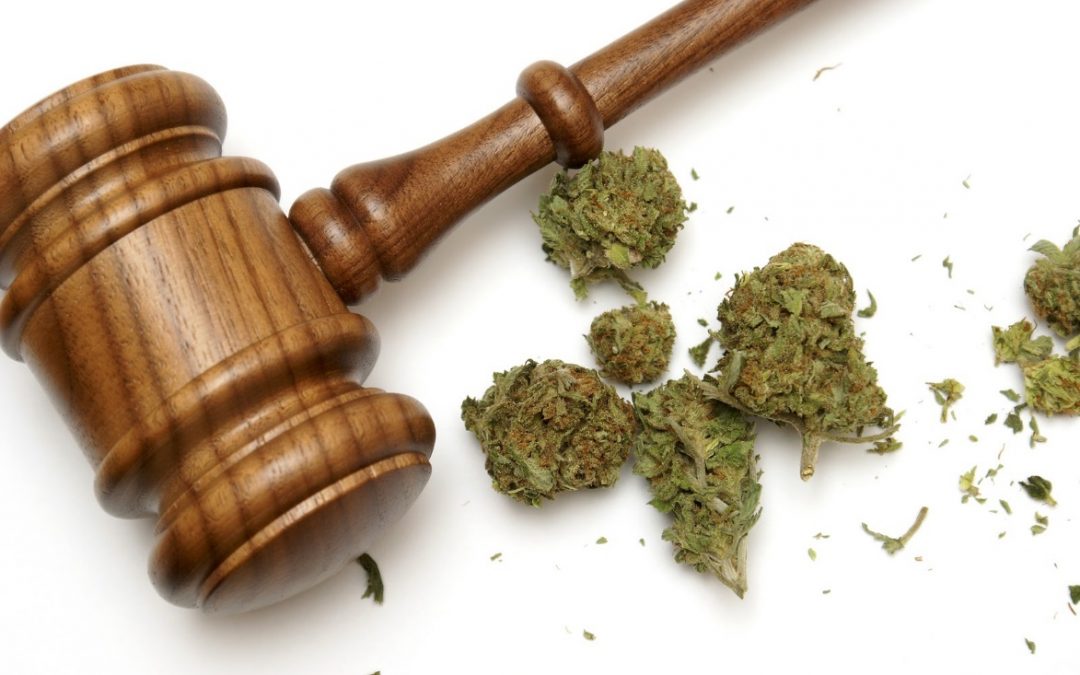It is not uncommon for veterans to report both physical and mental distress that can persist long after their service has ended. In fact, the U.S. Department of Veterans Affairs, also commonly referred to as the VA, estimates that twenty percent of the 2.7 million veterans from the wars in Iraq and Afghanistan will experience symptoms of depression and post-traumatic stress disorder at some point following their discharge (Source). In addition, many will also suffer from chronic pain caused by illness or complication from an injury sustained during their service.
For many veterans, cannabis may be an effective alternative to traditionally prescribed medications, namely opioids and other forms of painkillers, which can cause dependence, as well as a variety of other unpleasant side effects. In fact, for veterans living in one of the 34 states that have legalized medical marijuana, cannabis may be a safe and effective option for treating symptoms of pain, depression, and post-traumatic stress syndrome. However, using cannabis safely and successfully is more complicated for veterans with PTSD than for others. Boston medical marijuana doctor Jordan Tishler explains.
What Veterans Should Know About Using Medical Marijuana
Some veterans may be worried that using cannabis in combination with conventional medicine may result in the loss of their VA benefits. However, by law, veterans cannot be denied VA benefits due to their cannabis use. Veterans are encouraged to be honest with all of their clinicians, including those at the VA, about their use of cannabis and any other substance so that they may receive appropriate care from these healthcare providers. Like all medical information, VA patient records are considered confidential and are protected under national patient privacy laws.
How Can Cannabis Benefit Veterans?
THC, short for tetrahydrocannabinol, is one of the main cannabinoids, or types of medicine found in cannabis, and after over 60 years of research has been shown to be effective treatment for pain. THC has also been studied for treatment of depression and post-traumatic stress disorder. The effectiveness of THC for these conditions depends entirely on how it is dosed.
A recent study from 2018 noted that the cannabinoids in marijuana, including THC, may be more effective in treating PTSD in veterans than conventional methods, which many patients don’t respond well to or can’t tolerate at all. Although the status of marijuana as a Schedule 1 drug has made it difficult to study, the research is promising, and many veterans have reported that cannabis rich in THC has been tremendously helpful in alleviating their symptoms of pain and depression.
Other Beneficial Medicines Found in Medical Marijuana
Although many have heard of THC, few are familiar with THC-A, short for tetrahydrocannabinolic acid. THC-A is actually the most abundant cannabinoid found in cannabis — THC-A only converts to THC after it is heated up, undergoing a process known as decarboxylation, which changes the shape of the compound and allows it to bind to the CB1 receptors in our brains. Essentially, this means that THC-A by itself does not result in a feeling of euphoria or a “high” unless it is heated up (if you are interested in learning more about the endocannabinoid system and how this all works, click here).
THC-A is a powerful anti-inflammatory, much more so than THC or CBD. While most painful conditions are not auto-immune or inflammatory, those that are, like Rheumatoid Arthritis or Crohn’s Disease, are often well treated with THC-A.
It is important to note that CBD, also known as cannabidiol, is not recommended for veterans, especially those who take multiple prescription medications to manage their symptoms, as CBD can interact with many conventional medicines, especially those that are broken down in the liver. Neither THC or THC-A are known to interfere with common medications.
Are there Medical Risks of Cannabis Use for Veterans?
One of the largest risks to veterans from cannabis use is over-use or developing dependence. Veterans aren’t at any special physiological risk, but often times veterans get their cannabis guidance from their veteran buddies instead of knowledgeable healthcare practitioners. Unfortunately, that can have negative consequences (Source). In Medicine, we tend to view “less is more” whereas in the cannabis world generally more is seen as better. This can lead to over-use, as mentioned, and both physical and emotional dependence. At very high doses, cannabis may lead to brain deterioration that is entirely avoidable.
Can My Physician at the VA Prescribe Me Medical Marijuana?
No, physicians associated with the VA are not allowed to recommend medical marijuana to their patients, nor are VA pharmacies allowed to fill prescriptions for medical marijuana. Physicians and pharmacists at the VA can only prescribe and fill prescriptions for medications approved by the U.S. Food and Drug Administration (FDA) for medical use.
Currently, veterans are best served by knowledgeable cannabis specialists outside the VA. Many, including my practice, have special reduced rates for veterans. Presently, the VA will not pay or reimburse veterans for their medical marijuana related expenses, nor is the use of cannabis allowed on VA grounds at any time.
Additionally, those who work for the VA are considered employees of the federal government and are therefore subject to a comprehensive drug test, which includes testing for THC, in order to be considered for employment, as the U.S. Food and Drug Administration still considers marijuana a Schedule 1 substance (Source). Unfortunately, this means that veterans who use medical cannabis may also be unable to secure employment at a VA.
Consult a Trained Boston Medical Marijuana Specialist Today
Those who are considering adding THC, THC-A, or any compound found in medical marijuana to their treatment plan should first consult with a physician who has extensive experience with cannabis. Massachusetts medical marijuana doctor Jordan Tishler has spent years helping veterans use medical marijuana and can help you determine if using cannabis alongside conventional treatments may be beneficial. For more information, or to set up a consultation with Dr. Jordan Tishler and his team at InhaleMD, call us at (617) 477-8886 today.

